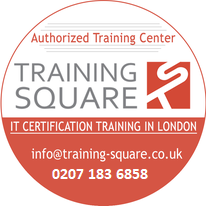Oracle Database 11g OCP Certification
From Megabyte to Terabyte, size of the data can grow as more information is stored. Think about a bank as an example who has several millions of customers and processing millions of transaction everyday. Question arises, Is there any database which can store and maintain the millions of information in the real time? Answer is certainly YES, Oracle Database provides the miracle solutions when it comes to storing data in the digital warehouse. Over the decades Oracle Database has become a heart of business and Oracle has been leader in the industry based on the storage, performance, cloud storage, scalability, manageability and integration. Oracle database provides high capabilities solution to small to larger organizations offering most comprehensive set of capabilities such as Real Application Clusters(RAC), Data Guard, Flashback, Recovery Manager(RMAN), Secure backup and Automatic Storage Management(ASM) which makes it most demanding database platform leader in the industry. Database is the most critical assets of a business and it needs reliable and robust data platform and has to be secured. If platform is not reliable and robust then businesses may lose millions of pounds as a result of downtime, in this perspective Oracle plays a greater role in the IT industry and it has taken major share in the market which has created resulted in creating jobs opportunities in the database arena. Learning Oracle 11g Database management and achieving the OCP certification is a goal to everyone who is pursuing their career in the Oracle DBA track. Training Square is an authorized Oracle Partner and we deliver a class-room based tutor led hands-on training in a very professional environment by certified experienced Oracle Trainers to enable you achieve your set goals at the completion of the course. If you are looking for job after the course we can certainly send your CV to prospective employers and the recruitment consultants or even assist you to analyse and update your CV to make it look professional.
Overview
Oracle DBA Training Overview:
Certification:
- Oracle Database 11g OCP Certification
Delivery:
- Oracle DBA classroom training. Instructor led hands-on classes.
Oracle DBA Certification Exams:
- 3 Exams, Real Time Simulation, Single and Multiple Choice Questions

Oracle DBA Course Length:
- 6 Weeks or Fast Track 5 Days
Oracle DBA Training Includes:
- Hands-on Training, Lab Exercises, Project work, Unlimited Lab Access, Free Re-training
Oracle DBA Training Locations:
- Liverpool Street, London
- London Bridge, London
- Moorgate, London
Flexible Starting Dates:
- Oracle DBA Training on Weekdays, Weekends and Evenings
Detail Syllabus
- Oracle OCP Exam #1Z0-051 - Oracle Database 11g: SQL Fundamentals I
- Oracle OCP Exam #1Z0-052 - Oracle Database 11g: Administration I
- Oracle OCP Exam #1Z0-053 - Oracle Database 11g: Administration II
- Oracle Official Requirement: - Delegate must do hands-on course with Oracle Certified Centers to be qualified for the Oracle OCP certification
- (Fulfilled requirement by doing training with us)
Oracle Database 11g OCP Certification
OCP Exam Number: 1Z0-051 - Oracle Database 11g: SQL Fundamentals I
Retrieving Data Using the SQL SELECT Statement
- List of SQL SELECT statements
- Execute SELECT statements
- Restricting and Sorting Data with clauses
Limit the rows using Select Statement
- Sort the rows retrieved by a query
- Use ampersand substitution to restrict and sort output at runtime
- Using Single-Row Functions to Customize Output
Types of functions available in SQL
- Use character, number, and date functions in SELECT statements
- Using Conversion Functions and Conditional Expressions
Conversion functions that are available in SQL
- Use the TO_CHAR, TO_NUMBER, and TO_DATE conversion functions
- Apply conditional expressions in a SELECT statement
- Reporting Aggregated Data Using the Group Functions
Group functions
- Describe the use of group functions
- Group data by using the GROUP BY clause
- Include or exclude grouped rows by using the HAVING clause
- Displaying Data from Multiple Tables
SELECT statements to access data from more than one table using equijoins and nonequijoins
- Join a table to itself by using a self-join
- View data that generally does not meet a join condition by using outer joins
- Generate a Cartesian product of all rows from two or more tables
- Using Subqueries to Solve Queries
Define subqueries
- Subqueries with SQL Statement
- Types of subqueries
- Single-row and multiple-row subqueries
- Set Operators
Set operators
- Set operator to combine multiple queries into a single query
- Control the order of rows returned
- Manipulating Data
Data manipulation language (DML) statement
- Insert rows, Update rows, Delete rows into a table
- Control transactions
- Using DDL Statements to Create and Manage Tables
Categorize database objects
- Table structure
- List the data types that are available for columns
- Create a simple table
- Explain how constraints are created at the time of table creation
- Schema objects
- Creating Other Schema Objects
Create simple and complex views
- Retrieve data from views
- Create, maintain, and use sequences
- Create and maintain indexes
- Create private and public synonyms
OCP Exam: 1Z0-052 - Oracle Database 11g: Administration I
Oracle Database Architecture
- Oracle 11g Database Memory Structures
- Oracle Database Process Structures
- Overview of Storage Structures
- Oracle Database Environment
Tools for Administering an Oracle Database
- Oracle Database installation
- Install the Oracle software by using Oracle Universal Installer (OUI)
- Creating an Oracle Database
- Create a database by using the Database Configuration Assistant (DBCA)
- Managing the Oracle Instance
Setting database initialization parameters
- Stages of database startup and shutdown
- Alert log and trace files
- Using data dictionary and dynamic performance views
- Configuring the Oracle Network Environment
Configure and Manage the Oracle Network
- Oracle Shared Server architecture
- Managing Database Storage Structures
Tablespace and datafiles
- Create and manage tablespaces
- Space management in tablespaces
- Administering User Security
Create and manage database user accounts
- Grant and revoke privileges
- Create and manage roles
- Create and manage profiles
- Managing Data and Concurrency
Monitor and resolve locking conflicts
- Managing Undo Data
Overview of Undo Data and Transaction
- Transactions and undo data
- Managing undo
- Implementing Oracle Database Security
Database Security and Principle of Least Privilege
- Work with Standard Database Auditing
- Database Maintenance
Use and manage optimizer statistics
- Automatic Workload Repository (AWR)
- Use advisory framework
- Manage Alerts and Thresholds
- Performance Management
Automatic Memory Management
- Use Memory Advisors
- Troubleshoot invalid and unusable objects
- Intelligent Infrastructure Enhancements
Enterprise Manager Support Workbench
- Managing Patches
- Backup and Recovery Concepts
Failure that can occur in an Oracle database
- Tune instance recovery
- Checkpoints, redo log files, and archived log files
- Flash recovery area
- Configure ARCHIVELOG mode
- Performing Database Backups
Create consistent database backups
- Back up your database without shutting it down
- Create incremental backups
- Automate database backups
- Manage backups, view backup reports and monitor the flash recovery area
- Performing Database Recovery
Data Recovery Advisor
- Use Data Recovery Advisor to Perform recovery (Control file, Redo log file and Data file)
- Moving Data
Move data (Directory objects, SQL*Loader, External Tables)
- General architecture of Oracle Data Pump
- Use Data Pump Export and Import to move data between Oracle databases
OCP Exam: 1Z0-053 - Oracle Database 11g: Administration II
Database Architecture and ASM
- Describe Automatic Storage Management (ASM)
- Set up initialization parameter files for ASM and database instances
- Start up and shut down ASM instances
- Administer ASM disk groups
- Configuring for Recoverability
Configure multiple archive log file destinations to increase availability
- Define, apply and use a retention policy
- Configure the Flash Recovery Area
- Use Flash Recovery Area
- Using the RMAN Recovery Catalog
RMAN recovery catalog
- Create and configure a recovery catalog
- Synchronize the recovery catalog
- Create and Use RMAN stored scripts
- Back up the recovery catalog
- Create and use a virtual private catalog
- Configuring Backup Specifications
Configure backup settings
- Allocate channels to use in backing up
- Configure backup optimization
- Using RMAN to Create Backups
Create image file backups
- Create a whole database backup
- Enable fast incremental backup
- Create duplex backup and back up backup sets
- Create an archival backup for long-term retention
- Create a multisection, compressed and encrypted backup
- Report on and maintain backups
- Performing User-Managed Backup and Recovery
Recover from a lost TEMP file
- Recover from a lost redo log group
- Recover from the loss of password file
- Perform user-managed complete database recovery
- Perform user-managed incomplete database recovery
- Perform user-managed and server managed backups
- Identify the need of backup mode
- Back up and recover a control file
- Using RMAN to Perform Recovery
Perform complete recovery from a critical or noncritical data file loss using RMAN
- Perform incomplete recovery using RMAN
- Recover using incrementally updated backups
- Switch to image copies for fast recovery
- Restore a database onto a new host
- Recover using a backup control file
- Perform Disaster recovery
- Using RMAN to Duplicate a Database
Creating a duplicate database
- Using a duplicate database
- Performing Tablespace Point-in-Time Recovery
Identify the situations that require TSPITR
- Perform automated TSPITR
- Monitoring and Tuning RMAN
Monitoring RMAN sessions and jobs
- Tuning RMAN
- Configure RMAN for Asynchronous I/O
- Using Flashback Technology
Restore dropped tables from the recycle bin
- Perform Flashback Query
- Use Flashback Transaction
- Additional Flashback Operations
Perform Flashback Table operations
- Configure, Monitor Flashback Database and Perform Flashback Database operations
- Set up and use a Flashback Data Archive
- Diagnosing the Database
Set up Automatic Diagnostic Repository
- Using Support Workbench
- Perform Block Media Recovery
- Managing Memory
Implement Automatic Memory Management
- Manually configure SGA parameters
- Configure automatic PGA memory management
- Managing Database Performance
SQL Tuning Advisor
- Use the SQL Access Advisor to tune a workload
- Understand Database Replay
- Space Management
Manage resumable space allocation
- Transportable tablespaces and databases
- Reclaim wasted space from tables and indexes by using the segment shrink functionality
- Managing Resources
Understand the database resource manager
- Create and use Database Resource Manager Components
- Automating Tasks with the Scheduler
Create a job, program, and schedule
- Use a time-based or event-based schedule for executing Scheduler jobs
- Create lightweight jobs
- Use job chains to perform a series of related tasks
- Administering the Scheduler
Create Windows and Job Classes
- Use advanced Scheduler concepts to prioritize jobs
Price Info
- Hands-on Tutor Led Training
- Classroom Based Practical Training
- Unlimited Practice Lab Access
- Small Size Class and Interactive Sessions
- Lab Exercises
- Mock Exam
- WiFi Internet
- Refreshments
- Completion Certificate
- Free Re-training
- Cost is calculated at 70 percent Tuition Vatable and 30 percent Training Book(s) with 0 rated Vat
Package Deal Offers
Career Package
MCSA SQL Server 2012 - £1250+Oracle 11g OCP Certification - £1850+MCSE Server 2012 - £1750 : Total Price £4850
Professional Package
Red Hat Admin & Networking - £1800+Oracle 11g OCP - £1850 : Total Price £3650
Specialised Package
MCSA SQL Server 2012 - £1250+Oracle 11g OCP Certification - £1850 : Total Price £3100

- Oracle Database 11g OCP Certification
- Oracle DBA classroom training. Instructor led hands-on classes.
- 3 Exams, Real Time Simulation, Single and Multiple Choice Questions
- 6 Weeks or Fast Track 5 Days
- Lab Exercises, Project work, Unlimited Lab Access, Free Re-training
- Oracle DBA Training on Weekdays, Weekends and Evenings

